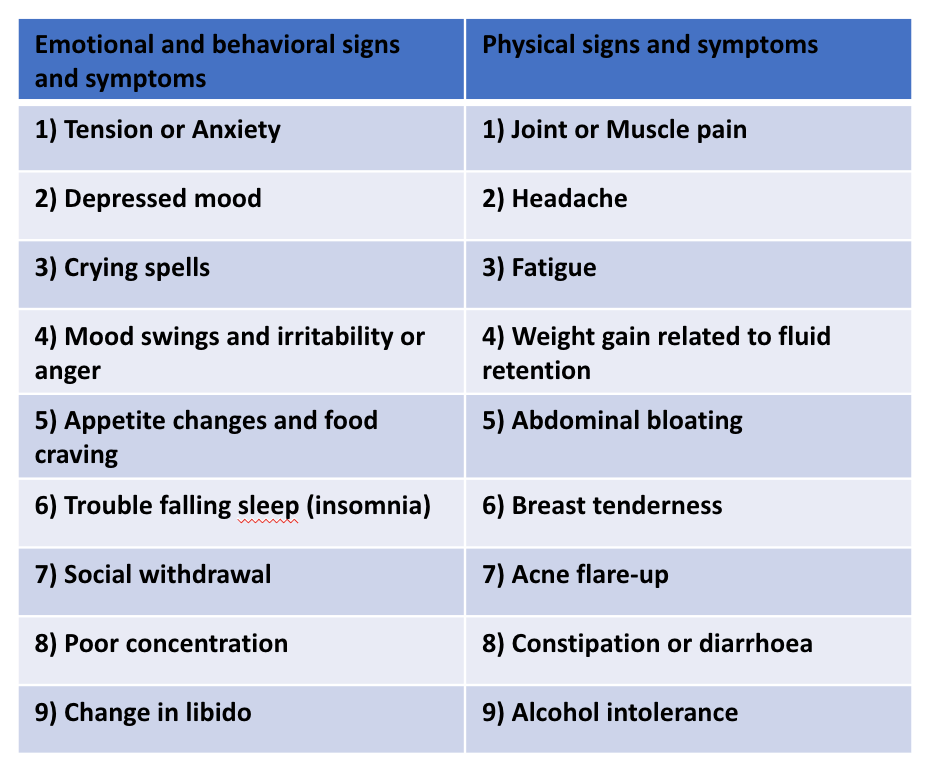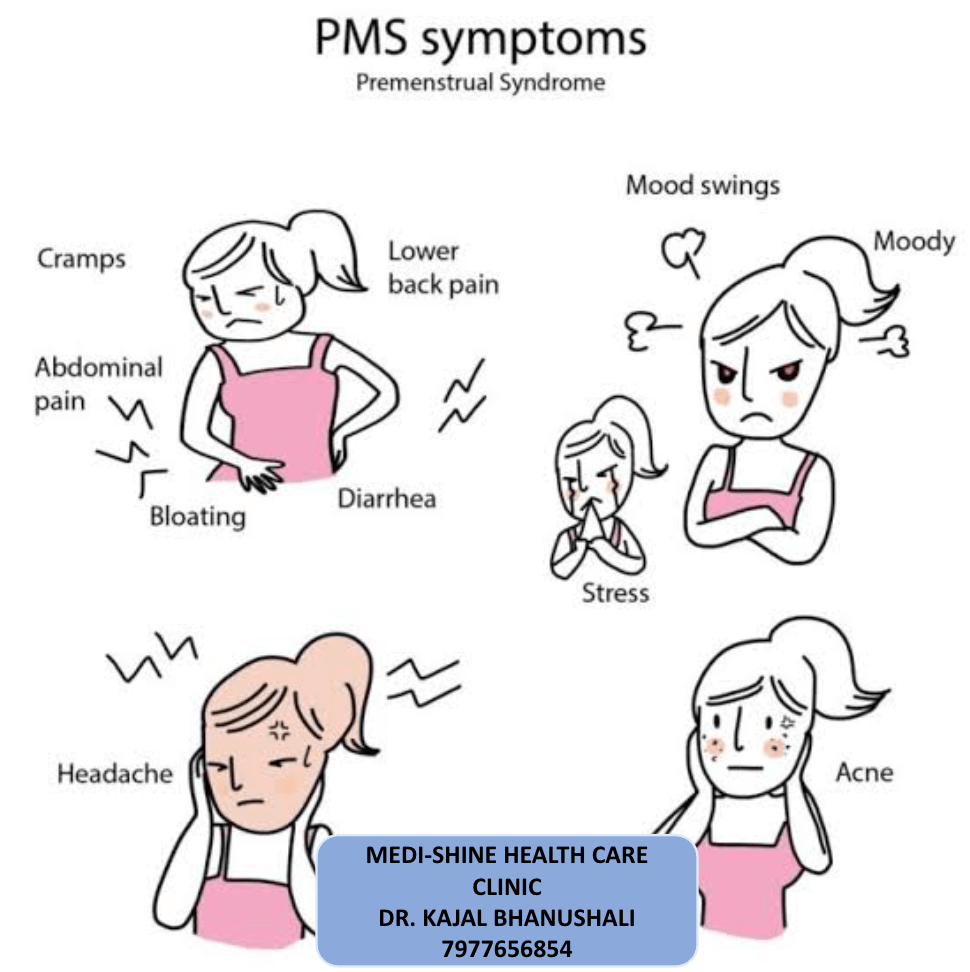
Premenstrual syndrome (PMS) is a combination of symptoms that many women get about a week or two before their period.
It has a wide variety of signs and symptoms, including mood swings, tender breasts, food cravings, fatigue, irritability and depression. It's estimated that as many as 3 of every 4 menstruating women have experienced some form of premenstrual syndrome.
Symptoms tend to recur in a predictable pattern. But the physical and emotional changes you experience with premenstrual syndrome may vary from just slightly noticeable all the way to intense.
Still, you don't have to let these problems control your life.
Treatments and lifestyle adjustments can help you reduce or manage the signs and symptoms of premenstrual syndrome.
Symptoms
The list of potential signs and symptoms for premenstrual syndrome is long, but most women only experience a few of these problems.


Causes
Exactly what causes premenstrual syndrome is unknown, but several factors may contribute to the condition:
Cyclic changes in hormones
igns and symptoms of premenstrual syndrome change with hormonal fluctuations and disappear with pregnancy and menopause.
Chemical changes in the brain.
Fluctuations of serotonin, a brain chemical (neurotransmitter) that's thought to play a crucial role in mood states, could trigger PMS symptoms. Insufficient amounts of serotonin may contribute to premenstrual depression, as well as to fatigue, food cravings and sleep problems.
Depression
Some women with severe premenstrual syndrome have undiagnosed depression, though depression alone does not cause all of the symptoms
